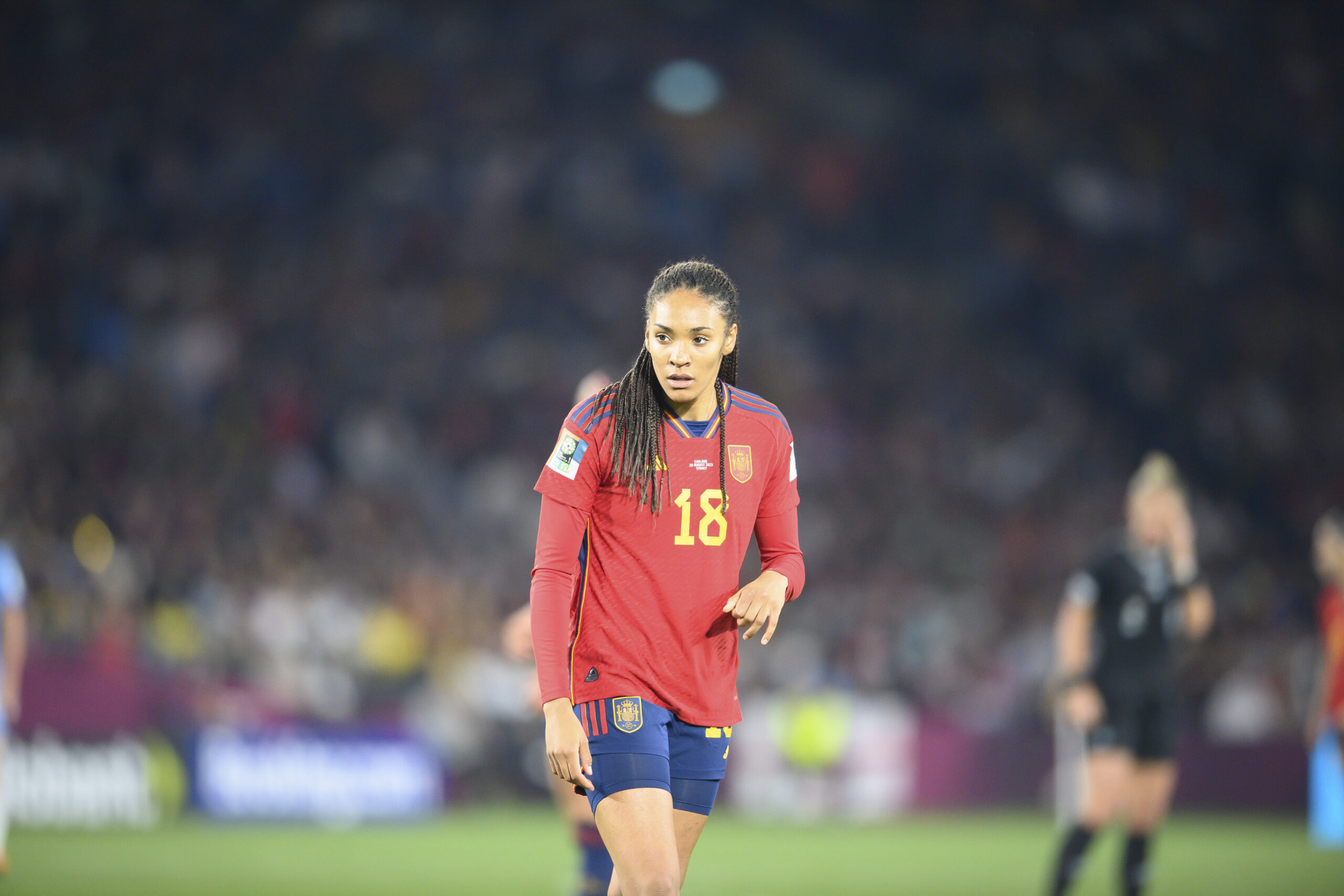For years, the Spanish women’s football system has been plagued by allegations of discrimination, inequality, and mistreatment. Despite the growing global prominence of women’s football, Spain’s footballing infrastructure has long been criticised for its lack of support, investment and respect towards female players. A shadow of systematic discrimination continues to loom over Spanish women’s football, hampering its full potential. Among those speaking out against these injustices is two-time Ballon d’Or winner and Barcelona star, Alexia Putellas, whose voice has amplified the need for change.
Alexia Putellas: A Voice for Change:
Alexia Putellas, one of the most influential figures in women’s football, has not shied away from addressing these injustices. The two-time Ballon d’Or Féminin winner has openly spoken about the challenges that female footballers face, both on and off the pitch. Her words carry weight, not just because of her sporting accolades, but because of her standing as a role model for future generations of women athletes.
In interviews, Putellas has highlighted the stark differences in how women’s football is treated in comparison to the men’s game. She’s called for better infrastructure, greater financial investment, and a more serious commitment from the Royal Spanish Football Federation (RFEF) to promote and support women’s football at all levels.
“We work just as hard, we train just as hard, and we play with the same passion and commitment as the men, but we do not receive the same respect or resources.”
Her statement underscores the pervasive gender disparity in football, where women are consistently given less visibility, fewer resources, and lower wages.
The Institutional Failure:
One of the primary issues affecting women’s football in Spain is the lack of institutional support. The RFEF, historically dominated by male leadership, has been slow to invest in the women’s game. This has resulted in a number of issues, ranging from inadequate training facilities to lower salaries for female players. In contrast to the men’s game, which enjoys extensive media coverage, sponsorship deals, and financial backing, the women’s game has long been treated as secondary.
The tipping point for these tensions came to a head in 2023, after Spain won the FIFA Women’s World Cup. Rather than celebrating a historic moment for Spanish football, the victory was overshadowed by controversy, particularly surrounding the actions of RFEF President Luis Rubiales. His unsolicited kiss of player Jenni Hermoso during the medal ceremony drew widespread condemnation and became a symbol of the underlying misogyny present in the administration of the sport. It also promoted outrage among the players, with many, including Putellas, demanding accountability and calling for systematic change.
Alexia Putellas, along with other senior players, supported Hermoso and took a firm stance against the RFEF, calling for Rubiales to resign. Their unified demand went beyond a single incident; it reflected years of accumulated frustration with the way the federation had treated them. Rubiales’ eventual resignation was a small victory, but it barely scratched the surface of the wider issues at play.
Disparities in Pay and Resources:
One of the most glaring manifestations of discrimination in women’s football is the pay gap between male and female players. In Spain, women footballers receive significantly lower wages, even at the top levels of competition. For years, female players have fought for the basic professional recognition, including better contracts, insurance coverage, and even the ability to train and play under the same conditions as their male counterparts.
The inequality is not just financial. The women’s teams often do not have access to the same quality of training grounds, medical support, or recovery facilities as the men. Matches are frequently scheduled at inconvenient times, with minimal media promotion, making it difficult for fans to follow the sport.
Putellas has been vocal about the need for RFEF and clubs to take the women’s game seriously.
“Investment in the game doesn’t just benefit the players; it benefits the entire football ecosystem.”
She emphasised that improving conditions for women’s football can drive more viewership, sponsorship, and fan engagement.
The Road Ahead:
While progress has been made, largely driven by the players themselves, much more remains to be done to combat the systematic discrimination in Spanish Women’s football. The victory of the Spanish women at the 2023 World Cup showed the world the level of talent within the country, but it also highlighted how these athletes have achieved success despite the many obstacles they face.
Putellas and her peers have made it clear that they are no longer willing to remain silent in the face of unfair treatment. Their fight is not just for equal pay or better facilities; it’s a fight for respect, dignity and recognition of their contributions to the sport. They have shown that the future of Spanish football must be inclusive and equitable.
In the words of Alexia Putellas:
“We are here to stay, and we deserve the same opportunities. Football is for everyone.”



